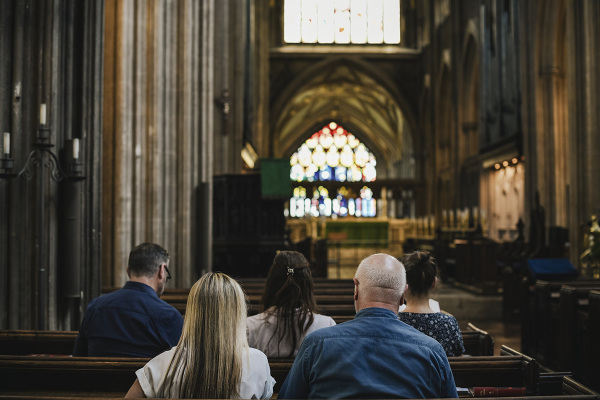Nigeria, act before you become Iraq, Syria

I remember when I first heard about Boko Haram activities in Northern Nigeria and the havoc the group wreaked. In the beginning, it seemed like Boko Haram only operated in the North in states like Borno until suddenly there were attacks in the South, in states like Lagos, where my mom, dad, and brothers lived. The president at the time, Goodluck Jonathan, did not declare the attacks terroristic until 2013 after thousands had been brutally killed. In 2018, the Buhari administration claimed that it had won the war against Boko Haram, but to date, the militant group carries on with its attacks in Nigeria.
The Muslim Fulani militants bear a striking resemblance to Boko Haram, and their attacks are a vivid reminder of the struggles Nigeria has had in the past and is still having with Boko Haram. In the past two years alone, over 4,000 people have been killed in the so-called “herder-farmer clash,” while everyone focused only on Boko Haram attacks, the Muslim Fulani militia became stronger and powerful. The Nigerian government and media repeatedly try to downplay the situation by calling the butchering of hundreds of babies, young girls and boys, unarmed men and women, the burning down of homes, churches, livelihoods, infrastructure a mere “clash” between farmers and herders.
The number of people who died from the COVID-19 pandemic (about 400 now) in Nigeria is nothing compared to the hundreds that have been murdered and maimed by Muslim Fulani militants in Nigeria this year alone. The Christians in the North do not have the level of safety and peace of mind to worry about washing their hands and keeping safe from the virus because they could be physically attacked at any moment and lose their lives. And those who miraculously survive the Fulani-herdsmen attacks, have lost their home, families, and belongings. They have nowhere to go and no hope for the future. Many are displaced and in constant danger of attacks because of their vulnerability.
There is always more to the story. If we are to trace the roots of the problem, one source would be the lack of conflict resolution mechanisms to hold people accountable for their actions immediately and justly. Before terroristic groups can have a hold on a nation, there has to be a breakdown of the governing system to find what caused the uprising. A fly does not just appear in one’s house, it uses the breaks of open doors, windows, broken screens to enter the home. The government’s failure to investigate and prosecute enables the continued violence and banditry that overflows from the collapse of Nigeria’s security. While most times, it is clear from the victims’ testimonies that Fulani militants raided their community, there are times when bandits attack instead and use the unstable situation to create fear and loot homes for their benefit.
Attacks on communities that resulted in burnt homes destroyed churches and infrastructure and the murder of hundreds of people has forced more than two million people in Nigeria to flee their home, creating an enormous population of internally displaced people (IDP) and counting. IDP camps are now overwhelmed, unsanitary, and lack adequate resources and health services to meet the needs of the families it holds. The children at IDP camps are not able to go to school, and their parents are not able to provide for them because there are no employment opportunities. Without a way to provide for their family, parents, and children alike, many settle for illegal ways of putting food on the table, which would only exacerbate the security problem in Nigeria.
On June 12, 2020, President Buhari gave a speech about the status of affairs in Nigeria. He only spoke about insurgents in three northern states (Yobe, Borno, and Adamawa) without addressing the issues in the middle belt region of the country or the situation with IDPs. Because the government is not addressing these issues, NGOs have been some of the most prominent players in raising awareness and humanitarian efforts to help the communities affected by Fulani militants, Boko Haram, and bandits.
Bottom Line: These attacks have strong religious undertones and are terroristic. The government needs to do something about it before it is too late. Unless the Nigerian government wants what ISIL did to Iraq and Syria to be our reality, the government needs to investigate, prosecute perpetrators, and root out evil now.
The recommendations provided by the U.K. All-Party Parliamentary Group for International Freedom of Religion or Belief in its report can help solve some of the issues in Nigeria if they are adequately executed. We can also be part of the change by creating awareness to hold the Nigerian government accountable. We need to act, before it is too late.
Becky Emmanuel is a second-year Law student at Regent University, passionate about peace, global justice, human rights and development. She is a graduate of Calvin University with a Bachelor's in International Relations and a minor in Strategic Communications. She is currently interning with Jubilee Campaign a nonprofit organization that promotes the human rights and religious liberty of ethnic and religious minorities.





















